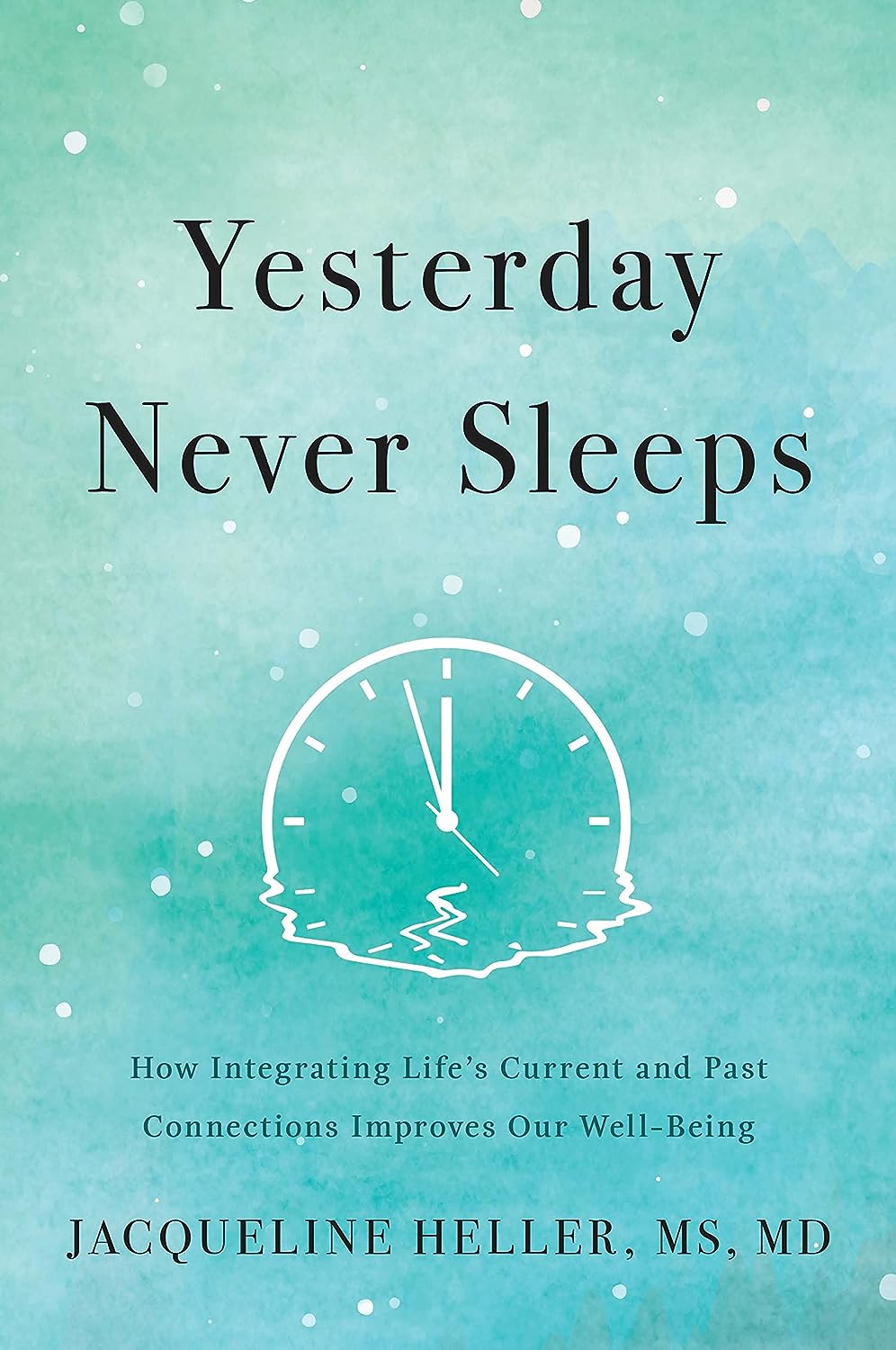Jacqueline Heller, MS, MD knows of what she speaks. I don’t mean just in the sense of her bonafide expertise. Nor do I say it in a colloquial sense, all-encompassingly regarding the nature of her new book, titled Yesterday Never Sleeps: How Integrating Life’s Current and Past Connections Improves Our Well-Being. There’s something personal about how Dr. Heller approaches the material. Something that she’s able to apply with a clinical lens, but draws from viscerally because of her intrinsic, personal experience.
ABOUT THE AUTHOR: https://jackieheller.com/
As the titling brilliantly encapsulates, the book is a therapeutic work of nonfiction – essentially serving as a self-help and life advice guide for forming a singular whole for one’s self. It’s not an easy process, and Dr. Heller writes with this kind of authoritativeness both maternal and somewhat barking – in a good way. She holds your hand while guiding you stoically through the storm, the storm being you, her, or a hypothetical other’s own psyche. You can’t escape the fact Dr. Heller seems to be as informed by hard-earned wisdom as by what constitutes her impressive credentials, and it makes the text that much richer, rather than feeling schizophrenic and tonally misplaced.
“We cannot know another person if we do not know ourselves, which is essential for relationships—for connection, compassion, empathy, and growth. We need to figure out what makes us tick and what ticks us off, no matter the environment. I wrote this book in part to explain the importance of becoming self-aware. The process of introspection helps control triggered emotions and encourages more flexible and adaptive responses,” Heller writes, in aforementioned vein. “…We all have our triggers, our ‘Rosebuds’; they are people, places, objects, ideas, memories, and dream fragments representing our undiscovered parts, the hidden hurts, and repressed longings often expressed in dysfunctional ways. They are the unconscious memories, often the most painful and the most deeply hidden; they are a stimulus that provokes an emotion and feeling—many times a day…This is where self-awareness can help; it allows us to calm down enough so we can think mindfully.
To gain self-awareness, we must become psychological sleuths and learn how to identify our emotions and patterns of dysfunctional responses before we act upon them…Indeed, becoming a self-reflective, psychologically savvy person will enrich your life. You might argue that turning inward is a selfish and arrogant thing to do. But in fact, it’s the opposite. Relationships dominate our inner world, and we become more empathetic and compassionate when we look inward and examine ourselves. As a result, we recognize otherness— we acknowledge that other people are not extensions of ourselves—and we develop tolerance and respect for people with different points of view, experiences, and wisdom. We will be much less likely to blame those closest to us for our baggage. We become more comfortable with uncertainty.”
AMAZON: https://www.amazon.com/Yesterday-Never-Sleeps-Integrating-Connections/dp/B0C1MBVKYJ
We become more comfortable with uncertainty. I took that to heart, as a reader, as a thinker, and as a fellow writer. I am a true believer in what Dr. Heller writes, not just because of the semantics effectively communicating the left-brain nature of the ideas. I believe it because it compliments my own journey to discovering adequate self-care. I can’t recommend enough the book because of that authenticity, which I am sure will speak to a number of people because of Heller’s generous, compassionate disposition as a storyteller.
Alexander Marias, posted by Garth Thomas

